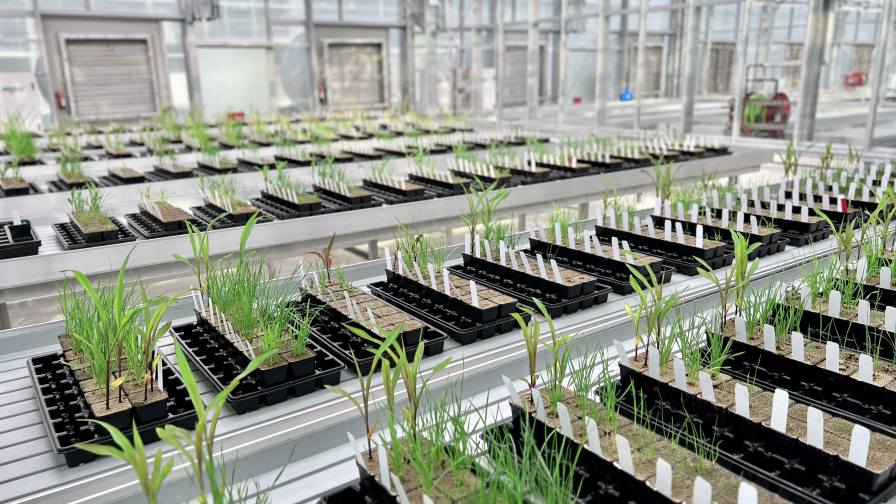AMVAC’s Bob Trogele Interviews Pacific Agriscience’s CS Liew About Global Investment and Geopolitical Influences for 2024 Planning
Welcome to AgriBusiness Global Report, a show that brings you executives interviewing executives or experts working in the agrochemical, biological, and plant health industries. In this show, Bob Trogele, Chief Operating Officer of AMVAC Corporation interviews CS Liew, Managing Director of Pacific Agriscience. They’ll discuss global investments and geopolitical influences for 2024 planning.
Having difficulty viewing this video, please click here.
BT: CS, if you had a billion to invest in agriculture today, where would you invest it? Any regional priorities or technological priorities?
CSL: Well, yeah, $1 billion dollars is a lot of money to invest.
If I were to invest in food production, I would say Asia and Africa. Why? Because these are the regions with growing populations. Food security is in the forefront of these regions’ governments as an issue they are thinking about. With a growing population, they need more food. And the governments know about this.
I want to note that considering personnel in agriculture and food production is an important issue. There are a lot of young people going to university to get an education in agriculture. But in developed parts of the world, like Europe and United States, especially in the United States, kids want to go to Wall Street. They don’t want to go to the farm unless they already have a farm. But by and large, they want to head to Wall Street and make a bunch of money. It’s important to ask for different regions, do you have the right people there to support your investments?
If you are talking about technology, I would say Europe and North America. That’s where you want to invest, because there’s a lot of innovation, especially in the biorational space with biostimulants, biopesticides, or some people want to call it the bioprotection products. Those two regions, North America and Europe are at the forefront of putting a lot of emphasis on biorationals, because consumers want fewer chemical residues on food. This is driving legislation toward using more biorationals and less chemical inputs.
For instance, the Farm to Fork strategy in the European Union, where it calls for a 50% reduction in chemical pesticide and a 20% reduction in chemical fertilizer usage by 2030. That strategy is driving a lot of focus on the biorationals.
In summary, I would say for food production, go for Asia and Africa. For technology, I would go for North America and Europe.
BT: I think that’s a great description. I always say, go where the growth is, and that kind of sums it up. I would fully agree with you. Looking at 2024, CS, we’ve got a lot of geopolitical or geo-economic challenges. What top three would you concentrate on if you consider 2024 and planning?
CSL: Political rivalry between nations, between regions, is certainly in the news these days. The very first one is the war in Ukraine. The war started last year, and it caused major disruptions in the supply chain, as far as agriculture is concerned. Ukraine is not only a major exporter of food grain and sunflower oil, but it is also a producer and exporter of some key fertilizers. Russia, too, is an exporter of fertilizers to many countries. For instance, in Brazil, I think something like 30% of what Brazil needs in terms of fertilizers comes from Russia.
At the onset of war, there was a major spiking in prices of food and fertilizers. These are inputs that farmers need. Over the months that the war has been going on, because, like everything, you know when prices go up sky high, they had to come to an equilibrium. Somehow, things will start to fall into place, and people will find alternatives to the disrupted supplies out of Russian and Ukraine.
But going forward, I would say it can go either way right now. Prices have come back down to a more reasonable level, but depending on whether the war is escalated going forward, or if there is peace, and hopefully there will be peace, because a lot of people are dying unnecessarily. If it escalates, then you get another spike in prices. However, if peace comes, then you’ll have the easing of prices, which will also be disruptive. When you have prices plunging, people have what I would call “toxic inventory,” because you import it at a higher price, and then prices start to go down, and it usually goes down very quickly. This is very disruptive.
Another geopolitical rivalry issue that could have impact in 2024, or going forward, would be the Northeast Asia situation between China and the United States over Taiwan.
Pelosi visited Taiwan. China was having warplanes flying over the Straits of Taiwan or surrounding Taiwan. Then you have the Americans sending battleships closer and closer to where the action is, and along the coastlines of China. Both sides are upping the ante.
During the Trump presidency, we had heavy import duties on Chinese goods because of this geopolitical rivalry issue. so that can happen again. You know I think the number of items that attracted a very big tariff have come down over the last two years or so. But you know, these sorts of things can happen again. 2024 is a year to look out for whether this is going to escalate further. My view is that it is going to, and that is irrespective of who comes in as the next United States president, because I think the U.S. Congress is united in this case, in terms of rivalry with China.
The third area would be BRICS consisting of Brazil, Russia, India, China, and South Africa. These nations have formed an economic block. There is talk about the BRICS gradually de-dollarizing their economies. and trade They want to rely less on using the U.S. dollar for trading, not only amongst themselves, but hopefully around the world. Of course, that’s creating a lot of tension and nervousness with the Americans. And now there’s also talk that maybe the United Arab Emirates and Saudi Arabia might want to fall in line and join the block as well They are major exporters of oil and they have always used the U.S. dollar for oil trading. There has been talk of Saudi Arabia trading with the Russians and with the Chinese, and not using the U.S. dollar.
There are a lot of political and geoeconomic tensions around the world. These are my top three areas in terms of geopolitical rivalry that, I would say, would have an impact on 2024.
However, with the de-dollarization issue, the usage of the U.S. dollar for trading didn’t happen overnight. It was built up over the years. Any talk of de-dollarization will likewise take many years to implement. However, since discussions about it are happening, there are tensions building up.
BT: Well, those are three that I’m watching very closely, too. Thank you for that explanation, and I certainly agree with you that going into 2024, if I look at the commodity trading, everything is a really short-term contract. I’m sure for the viewers today, it’s very important to know and be aware that 2024 is going be a very different year than 2023.







